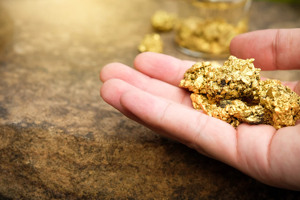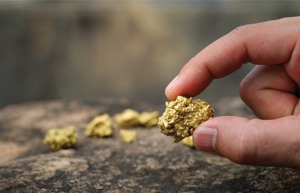Tavex uses cookies to ensure website functionality and improve your user experience. Collecting data from cookies helps us provide the best experience for you, keeps your account secure and allows us to personalise advert content. You can find out more in our cookie policy.
Please select what cookies you allow us to use
Cookies are small files of letters and digits downloaded and saved on your computer or another device (for instance, a mobile phone, a tablet) and saved in your browser while you visit a website. They can be used to track the pages you visit on the website, save the information you enter or remember your preferences such as language settings as long as you’re browsing the website.
| Cookie name | Cookie description | Cookie duration |
|---|---|---|
| tavex_cookie_consent | Stores cookie consent options selected | 60 weeks |
| tavex_customer | Tavex customer ID | 30 days |
| wp-wpml_current_language | Stores selected language | 1 day |
| AWSALB | AWS ALB sticky session cookie | 6 days |
| AWSALBCORS | AWS ALB sticky session cookie | 6 days |
| NO_CACHE | Used to disable page caching | 1 day |
| PHPSESSID | Identifier for PHP session | Session |
| latest_news | Helps to keep notifications relevant by storing the latest news shown | 29 days |
| latest_news_flash | Helps to keep notifications relevant by storing the latest news shown | 29 days |
| tavex_recently_viewed_products | List of recently viewed products | 1 day |
| tavex_compare_amount | Number of items in product comparison view | 1 day |
| Cookie name | Cookie description | Cookie duration |
|---|---|---|
| chart-widget-tab-*-*-* | Remembers last chart options (i.e currency, time period, etc) | 29 days |
| archive_layout | Stores selected product layout on category pages | 1 day |
| Cookie name | Cookie description | Cookie duration |
|---|---|---|
| cartstack.com-* | Used for tracking abandoned shopping carts | 1 year |
| _omappvp | Used by OptinMonster for determining new vs. returning visitors. Expires in 11 years | 11 years |
| _omappvs | Used by OptinMonster for determining when a new visitor becomes a returning visitor | Session |
| om* | Used by OptinMonster to track interactions with campaigns | Persistent |
| Cookie name | Cookie description | Cookie duration |
|---|---|---|
| _ga | Used to distinguish users | 2 years |
| _gid | Used to distinguish users | 24 hours |
| _ga_* | Used to persist session state | 2 years |
| _gac_* | Contains campaign related information | 90 days |
| _gat_gtag_* | Used to throttle request rate | 1 minute |
| _fbc | Facebook advertisement cookie | 2 years |
| _fbp | Facebook cookie for distinguishing unique users | 2 years |
Is the Gold State Coach Made of Real Gold?

Steeped in history, opulence, and grandeur, the Gold State Coach is one of the most iconic symbols of British royalty. Adorned with golden hues and exquisite detail, it instantly captivates spectators and raises a curious question: is it made of real gold?
This article dives into the fascinating background, craftsmanship, and mystery surrounding the Gold State Coach to uncover the truth behind its golden appearance.
What is the Gold State Coach?

The Gold State Coach is a grand, gilded carriage that serves as the ceremonial vehicle for British monarchs. Known for its shimmering gold finish, it has been used in significant royal processions, including coronations and jubilees.
Originally commissioned by King George III, this coach has become an enduring symbol of British heritage and monarchy.
History and Construction of the Gold State Coach
Commissioned in 1760, the Gold State Coach was built during the reign of King George III by the coach builder Samuel Butler.
Designed to reflect the majesty and status of the British crown, the coach has played a significant role in royal ceremonies for over two centuries, appearing in historic events that resonate through generations.
Materials Used in the Gold State Coach

While the Gold State Coach has an impressive golden appearance, it isn’t actually made from solid gold. Instead, it’s carefully covered in gold leaf, a thin layer of gold applied to its surface.
The framework is primarily crafted from wood, allowing artisans to achieve intricate carvings and structural strength without the weight or expense of solid gold.
Other uses of gold leaf: Is gold leaf edible?
Is the Gold State Coach Made of Real Gold?

The simple answer is: no, the Gold State Coach is not made entirely of real gold
However, the gilding process involves the application of genuine gold leaf, giving it that unmistakable, luxurious golden glow.
This choice allows the coach to have a resplendent look without the enormous cost and logistical challenges of using solid gold.
How Much Gold is Actually on the Coach?
The amount of gold on the coach is difficult to quantify, but it’s estimated to be just a few ounces of gold leaf.
If the coach were solid gold, its weight would be far too immense to function as a vehicle, making gold leaf an ideal choice for creating an illusion of solid gold while maintaining practicality.
Significance of the Gold Finish
Gold has long been associated with royalty, symbolising wealth, power, and divine right. The use of gold leaf on the coach reflects these values, emphasising the grandeur of the British monarchy and creating a regal presence during ceremonies.
The Art of Gilding: How It’s Done

Gilding is an intricate art form requiring skill and precision
Craftsmen carefully apply thin sheets of gold leaf to surfaces with a delicate touch, using adhesives to secure the leaf.
Over time, the Gold State Coach has undergone restoration efforts to maintain its gleaming appearance, requiring the same artisanal techniques as when it was first built.
Intricate Details of the Gold State Coach
The Gold State Coach features elaborate decorations, including carved angels, tritons, and other symbols, each element meticulously crafted to convey elegance and majesty.
These details showcase not only the artistic talent of the period but also the enduring value placed on symbolism in royal iconography.
Royal Usage of the Gold State Coach
The Gold State Coach is typically reserved for the most significant royal occasions, such as coronations and jubilees
It has appeared in some of the most memorable moments in British history, making it a central piece in royal traditions.
When not in use, the coach is carefully stored and preserved, ensuring it remains in pristine condition.
Why the Gold State Coach Isn’t Made of Solid Gold

Making the coach from solid pure gold would have posed practical challenges. A solid gold structure would be excessively heavy, requiring an impractical number of horses to pull it and making it difficult to manoeuvre.
Additionally, the cost of using solid gold would have been exorbitant, even by royal standards.
Comparisons to Other Royal Coaches and Vehicles
While the Gold State Coach is one of the most famous, other royal families worldwide also have their ceremonial carriages, each unique in design and materials. However, the Gold State Coach stands out for its golden appearance and intricate artistry, which few other coaches can match.
Interesting Facts About the Gold State Coach
- Weighing around four tons and measuring 24 feet long, the Gold State Coach requires eight horses to pull it.
- Its impressive weight and size make it a significant presence, and it has remained a fascination for royal watchers and history enthusiasts alike.
The Gold State Coach in Modern Times
Despite its age, the Gold State Coach continues to make appearances in modern royal events.
Preservation efforts ensure that it remains a testament to British history, and it’s expected to play a part in future celebrations.
Conclusion
The Gold State Coach, while not made of solid gold, remains one of the most splendid icons of British royalty. Its golden finish, achieved through the application of real gold leaf, symbolises the wealth, power, and tradition of the British monarchy.
This magnificent carriage continues to capture imaginations and reflect the splendor of the British crown.


















